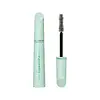What's inside
What's inside
 Key Ingredients
Key Ingredients

 Benefits
Benefits

 Concerns
Concerns

 Ingredients Side-by-side
Ingredients Side-by-side

Water
Skin ConditioningParaffin
PerfumingStearic Acid
CleansingPvp
Emulsion StabilisingCetyl Alcohol
EmollientCera Microcristallina
Emulsion StabilisingHydrogenated Vegetable Oil
EmollientArginine
MaskingPolysorbate 20
EmulsifyingPropylene Glycol
HumectantRhus Verniciflua Peel Wax
Copernicia Cerifera Cera
Emollient2,3-Butanediol
HumectantStearyl Stearate
EmollientSynthetic Wax
AbrasivePanthenol
Skin ConditioningCandelilla Cera
EmollientCaprylyl Glycol
EmollientHectorite
AbsorbentSimethicone
EmollientSilica
AbrasiveTocopheryl Acetate
AntioxidantKaolin
AbrasivePantolactone
HumectantArgania Spinosa Kernel Oil
EmollientCamellia Sinensis Seed Oil
HumectantCellulose
AbsorbentPassiflora Edulis Seed Oil
EmollientRicinus Communis Seed Oil
MaskingSclerocarya Birrea Seed Oil
HumectantSimmondsia Chinensis Seed Oil
EmollientCocos Nucifera Oil
MaskingCaprylic/Capric Triglyceride
MaskingPersea Gratissima Oil
Skin ConditioningBiotin
AntiseborrhoeicCeramide Ng
Skin ConditioningChamomilla Recutita Flower Extract
MaskingCucumis Sativus Fruit Extract
EmollientAloe Barbadensis Leaf Extract
EmollientTocopherol
AntioxidantIron Oxides
CI 77007
Cosmetic ColorantWater, Paraffin, Stearic Acid, Pvp, Cetyl Alcohol, Cera Microcristallina, Hydrogenated Vegetable Oil, Arginine, Polysorbate 20, Propylene Glycol, Rhus Verniciflua Peel Wax, Copernicia Cerifera Cera, 2,3-Butanediol, Stearyl Stearate, Synthetic Wax, Panthenol, Candelilla Cera, Caprylyl Glycol, Hectorite, Simethicone, Silica, Tocopheryl Acetate, Kaolin, Pantolactone, Argania Spinosa Kernel Oil, Camellia Sinensis Seed Oil, Cellulose, Passiflora Edulis Seed Oil, Ricinus Communis Seed Oil, Sclerocarya Birrea Seed Oil, Simmondsia Chinensis Seed Oil, Cocos Nucifera Oil, Caprylic/Capric Triglyceride, Persea Gratissima Oil, Biotin, Ceramide Ng, Chamomilla Recutita Flower Extract, Cucumis Sativus Fruit Extract, Aloe Barbadensis Leaf Extract, Tocopherol, Iron Oxides, CI 77007
Isododecane
EmollientCera Alba
EmollientCopernicia Cerifera Cera
EmollientDisteardimonium Hectorite
StabilisingDilinoleic Acid/Butanediol Copolymer
Water
Skin ConditioningAllyl Stearate/Va Copolymer
Oryza Sativa Cera
Skin ConditioningParaffin
PerfumingAlcohol Denat.
AntimicrobialPolyvinyl Laurate
Vp/Eicosene Copolymer
Propylene Carbonate
SolventTalc
AbrasiveSynthetic Beeswax
Emulsion StabilisingEthylenediamine/Stearyl Dimer Dilinoleate Copolymer
Skin ConditioningPEG-30 Glyceryl Stearate
EmulsifyingCandelilla Cera
EmollientRicinus Communis Seed Oil
MaskingPanthenol
Skin ConditioningMaltodextrin
AbsorbentPentaerythrityl Tetra-Di-T-Butyl Hydroxyhydrocinnamate
AntioxidantBHT
AntioxidantCentaurea Cyanus Flower Extract
AstringentCI 77499
Cosmetic ColorantIsododecane, Cera Alba, Copernicia Cerifera Cera, Disteardimonium Hectorite, Dilinoleic Acid/Butanediol Copolymer, Water, Allyl Stearate/Va Copolymer, Oryza Sativa Cera, Paraffin, Alcohol Denat., Polyvinyl Laurate, Vp/Eicosene Copolymer, Propylene Carbonate, Talc, Synthetic Beeswax, Ethylenediamine/Stearyl Dimer Dilinoleate Copolymer, PEG-30 Glyceryl Stearate, Candelilla Cera, Ricinus Communis Seed Oil, Panthenol, Maltodextrin, Pentaerythrityl Tetra-Di-T-Butyl Hydroxyhydrocinnamate, BHT, Centaurea Cyanus Flower Extract, CI 77499
Ingredients Explained
These ingredients are found in both products.
Ingredients higher up in an ingredient list are typically present in a larger amount.
Candelilla Cera isn't fungal acne safe.
This ingredient comes from a palm tree native to Brazil. This ingredient is used to thicken texture and leaves behind a film when applied.
Panthenol is a common ingredient that helps hydrate and soothe the skin. It is found naturally in our skin and hair.
There are two forms of panthenol: D and L.
D-panthenol is also known as dexpanthenol. Most cosmetics use dexpanthenol or a mixture of D and L-panthenol.
Panthenol is famous due to its ability to go deeper into the skin's layers. Using this ingredient has numerous pros (and no cons):
Like hyaluronic acid, panthenol is a humectant. Humectants are able to bind and hold large amounts of water to keep skin hydrated.
This ingredient works well for wound healing. It works by increasing tissue in the wound and helps close open wounds.
Once oxidized, panthenol converts to pantothenic acid. Panthothenic acid is found in all living cells.
This ingredient is also referred to as pro-vitamin B5.
Learn more about PanthenolParaffin is a solid created from petroleum. The term 'paraffin' can also refer to either
petroleum jelly or mineral oil.
It has natural occlusive properties which can worsen oily skin. Due to its petrolatum base, this ingredient is not fungal-acne safe.
Ricinus Communis Seed Oil is the INCI name for castor oil.
Castor Oil helps moisturize the skin. It is rich in a fatty acid called ricinoleic acid. This fatty acid helps prevent moisture loss on the skin. This helps keep your skin soft and hydrated. Ricinoleic acid also has anti-inflammatory and pain reducing properties.
Besides hydrating the skin, castor oil is also used to hydrate hair. By keeping the hair shaft moisturized, breakage is decreased. More studies are needed to show castor oil's effective on stimulating hair growth.
Castor oil is created by cold-pressing castor seeds and then purifying the oil with heat. It was used in Ancient Egypt as fuel in lamps and to help treat eye irritation.
The term 'fragrance' is not regulated in many countries. In many cases, it is up to the brand to define this term. For instance, many brands choose to label themselves as "fragrance-free" because they are not using synthetic fragrances. However, their products may still contain ingredients such as essential oils that are considered a fragrance.
Learn more about Ricinus Communis Seed OilWater. It's the most common cosmetic ingredient of all. You'll usually see it at the top of ingredient lists, meaning that it makes up the largest part of the product.
So why is it so popular? Water most often acts as a solvent - this means that it helps dissolve other ingredients into the formulation.
You'll also recognize water as that liquid we all need to stay alive. If you see this, drink a glass of water. Stay hydrated!
Learn more about Water